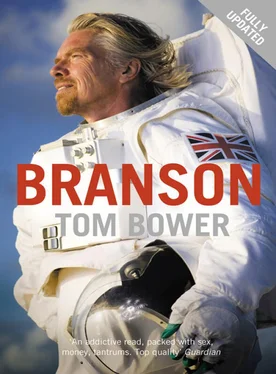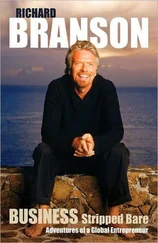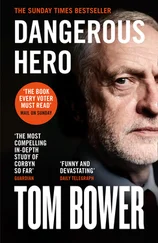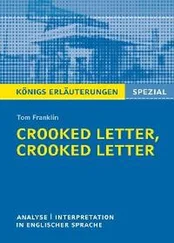Act One of the performance was perfect. ‘It’s all legal,’ Branson smiled benignly, showing the Customs forms stamped at Dover. ‘You won’t find any export records here.’ The same bluff used successfully at the magistrates court to minimise the prosecution for poaching, he hoped, could disorientate the investigators.
‘We personally bought these records from your mail order company,’ snapped Dick Brown waving his copy of ‘She’s a Lady’. ‘They were marked for export. Here’s the paperwork. And here’s your signature on the PT 999. There’s no doubt. Now where’s the stock?’
‘Oh fuck.’ Branson was stunned. Public humiliation provoked tears. Discovery was not part of the plot. Tears dripped from his cheek on to his blue jumper. For once, his weakness could not be turned into a virtue. The performance was terminated. ‘We hid them in Oxford Street.’ A gulp. ‘Can I phone my mother?’
‘There’s a bit of a problem,’ choked Branson on the line to Shamley Green, deep in the Surrey Jag and gin belt.
‘He’s as good as gold,’ decided Brown as he listened to Ricky explain his plight on the telephone. Their catch was a vulnerable, public schoolboy, ‘not the usual toe-rag but an entrepreneur, and a good bloke’.
‘Look upstairs,’ ordered Brown over the telephone to the team searching through the stock in Oxford Street. Within the hour, Branson was shown the ultra violet markings on the records brought from the West End. ‘If only I’d known,’ he spluttered, secretly angry that the records had not been destroyed the previous night.
‘You’re under arrest,’ announced Brown. ‘We’d like you to come with us now to Dover.’
‘Oh God,’ blabbed Branson, suddenly aware of his plight. But his good humour soon revived. Searching through his desk, an officer had pulled out a half empty packet of condoms. Glancing at all the pretty young girls in the building, the officer sighed. These were not villains, he realised, but sex-obsessed hippies living on a different planet from Customs officers. His prisoner smiled. The ‘scene’ – sex, music and friendship – mitigated the gravity of his crime. His charm undermined any remaining barriers.
‘I’m starting out in my career,’ explained Branson, as the Customs official’s car crossed the River Thames heading towards the Channel port. ‘I’ve just opened one shop and I’m building a recording studio in a manor I’ve bought in Oxfordshire.’
‘You should open shops in Bristol and Birmingham,’ suggested Brown, warming to the young man. ‘Paying your staff such low wages, you’ll be a millionaire one day.’
‘Do you think so, Dick?’ replied Branson, breaking down another barrier. ‘My bankers are the problem. We’re always short of cash. I need a couple of guys like you in suits to work for me.’ The charm was natural.
The joviality continued during an unscheduled lunch stop in a pub. Distracted by Branson’s manner, Brown allowed his prisoner to drink alcohol, a breach of regulations. An unusually warm relationship had developed despite the Customs officer’s realisation of the fundamental dishonesty of Branson’s financial accounts. Not only were the extra profits which Virgin had earned on the ‘export’ records concealed, but their American imports were deliberately undervalued to diminish import duties.
‘I just want to protect my business,’ soothed Branson, glossing over the dishonesty. ‘I’m just starting. How can I put all this right? We’re all human beings.’ In that strange British guise, his disarming performance and his social confidence bestowed a veneer of decency.
The officers’ procedure could not be changed. Fearful that a hippie would disappear, they had decided upon an arrest rather than a summons. Once in Dover, there was no alternative but to place Branson in jail overnight before his appearance in court the following morning.
At daybreak, the lobbying of Brown and Knox was resumed by Eve, Branson’s forty-eight-year-old mother, and the dominant influence in his life. Sitting with Ted, her husband, introduced as a barrister and stipendiary magistrate, Eve Branson glanced at her dishevelled and depressed son. ‘Now officers,’ cooed the former air hostess, ‘how can we sort this out?’ Eve’s dignity and class confirmed Knox’s and Brown’s opinion that this was an exceptional case. ‘We’d like to arrange bail,’ said Eve, ‘and settle this amicably. He’s only twenty years old. He’s been very foolish and it’s unnecessary that his life should be ruined by a criminal conviction. He’ll repay the taxes and any fine but we’d prefer to keep it out of the court.’ The absence of an aggressive solicitor and the impressive honesty of the Branson family persuaded the officers to consider a deal. ‘Have you got the money for bail?’ asked Brown.
‘No,’ replied Eve, ‘but we’ll put up our house, our only home.’
The normally cynical officers were impressed. ‘And we’ll guarantee the repayment of the taxes and the fine,’ continued Eve, ‘even if we have to sell our home.’ After a suitable pause, she added, alarmed that twenty years of loving ambition were on the verge of disintegration, ‘He’s very young. He should be given a second chance.’
Knox and Brown agreed. This was a genuine, one-off error. There would be a brief court appearance to set bail at £30,000 secured on the family home. The young Branson would be released without further prosecution. ‘No publicity?’ urged Eve.
‘Absolutely,’ promised Knox. Customs were always discreet.
In the following weeks, meeting Branson on the Duende , his houseboat just purchased for £200 and moored in Little Venice, Brown set out the terms of the settlement proposed by his superiors. The investigations had by then revealed the sophisticated nature of Branson’s fraud. Contacting the customers across Europe and America listed on Branson’s export certificates, the investigators discovered that none of those named had ever bought records from Caroline. ‘The scam’s enormous,’ a Customs official declared.
‘You owe us £40,000 in back taxes and we are charging a £20,000 fine,’ announced Brown. Just after Branson’s twenty-first birthday, he owed the modern equivalent of over £500,000.
‘I can’t afford that,’ said Branson. ‘Can I pay by instalments?’ After negotiations interrupted by tea, it was agreed that Branson would pay £15,000 immediately and £45,000 in monthly payments of £3,000.
His crime was too well-known to be concealed, so over the years Branson has presented his illegality as an early watershed in life. The sackcloth and ashes version is: ‘One night in jail teaches you that sleeping well at night is the only thing that really matters. Every single decision since has been made completely by the book.’ That interpretation, however, belied one of his life’s principal credos: ‘I have always enjoyed breaking the rules.’ His prescient headmaster at Stowe had noted that trait, predicting on the eve of the seventeen-year-old’s premature departure from school that Branson would either become a millionaire or go to prison. By twenty-one, he had achieved the latter, albeit briefly. ‘He appears modest,’ Mike Knox would reflect at the end of his investigation, ‘with a disarming personality offering to help everybody. But he’s got this ruthless ambition.’
Once Branson had begun to court celebrity as a millionaire tycoon, he progressively introduced distortions to minimise the gravity of the fraud. In 1984, he mentioned that he was ‘only eighteen’ when the embarrassment occurred rather than nearly twenty-one. The following year he described his ‘eighteen-year-old fraud’ as occurring ‘only three times’ before his arrest at the port on the third occasion. In 1986, he told the Sun that he escaped imprisonment, ‘by convincing the court that he didn’t know it was illegal’. Two years later, in 1988, he chose another variation for Mick Brown, his first biographer, recounting that he personally drove four times through the Customs post at Dover before he was caught. His version in 1992 conjured a sophisticated tale about shipping worthless titles and empty boxes to the Continent for ‘one month’ after discovering himself to be penniless after investing in his mail order business, his shops and the new manor recording studio in Oxfordshire. In truth, the shops and the recording studio were partly financed by the fraud. ‘I had a pile of debt and no real money,’ he truthfully admitted. By 1994, as the owner of a famous international airline, Branson excused himself from the whole enterprise saying: ‘I had not realised the rules.’ In his autobiography in 1998, Branson offered another explanation: there were only three trips, he wrote, starting in spring 1971 to cover debts of £35,000 and ‘big operators’ were far worse. All those variations were a smokescreen. He had simply played the game and, unforgivably, he had lost.
Читать дальше












